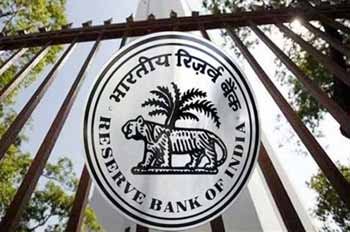INVC NEWS
New Delhi : The domestic stock market is set to be heavily influenced this week by key economic events, most notably the Reserve Bank of India’s (RBI) interest rate decisions, geopolitical tensions in West Asia, and the actions of Foreign Institutional Investors (FIIs). Analysts predict that these factors, along with significant corporate results and macroeconomic data, will play a decisive role in determining the market’s direction.
Notably, the upcoming quarterly earnings of IT giant Tata Consultancy Services (TCS), domestic liquidity trends, crude oil prices, and international economic figures will also contribute to market movements. Last week, a surge in tensions in West Asia and the withdrawal of foreign funds resulted in a steep drop in Indian markets. Moving forward, the market’s path will largely depend on domestic monetary policy and global economic indicators.
RBI’s Monetary Policy Committee (MPC) Meeting Under Spotlight
The RBI’s Monetary Policy Committee (MPC) is scheduled to begin its meeting on October 7, with the outcomes to be announced on October 9. All eyes will be on the central bank’s decision regarding the interest rate, as it will have far-reaching effects on the market. The RBI’s interest rate decision is critical to understanding market liquidity and the overall economic environment.
The domestic liquidity situation remains robust, but analysts suggest that sectors with higher valuations might see a shift in liquidity towards sectors that offer more attractive valuations. This movement of funds, spurred by the RBI’s decision, could drive significant changes in the stock market.
In addition to the MPC meeting, the release of domestic macroeconomic data, such as industrial production figures, will also influence market sentiment. The interplay of domestic economic strength and global forces could create volatility in the coming week.
Foreign Institutional Investors (FIIs) and Their Role in Market Movements
One of the key factors that will dictate the market’s direction is the behavior of Foreign Institutional Investors (FIIs). In recent weeks, FIIs have pulled out significant amounts from Indian equities, leading to sharp corrections in the market. With some foreign investors looking towards lower-valued Asian markets, the outflow of foreign capital is expected to remain a concern for Indian stocks.
The geopolitical situation in West Asia has exacerbated this trend. Escalating tensions in the region have created uncertainty, which has led to volatility in the global financial markets. If these tensions continue to rise, we can expect further disruption in global and domestic equity markets.
Impact of TCS Earnings and Other Corporate Results on the Market
The market will also be closely watching the results of major corporations, particularly Tata Consultancy Services (TCS), which will be the first major company to announce its quarterly earnings this week. As a heavyweight in the IT sector, TCS’s results often set the tone for the broader market, especially for other IT stocks.
Additionally, the broader earnings season will likely provide further insights into the performance of other major sectors such as automobiles, pharmaceuticals, and consumer goods. Analysts believe that this earnings season could lead to sectoral rotations, where funds move from overvalued sectors into those that present more compelling valuations.
Crude Oil Prices and Their Effect on the Market
Crude oil prices remain a key factor for the stock market. As tensions in West Asia increase, Brent crude prices have surged, which is likely to impact oil-importing economies like India. A sustained rise in crude prices could lead to higher inflation in India, thus putting pressure on the RBI to take more decisive action to keep inflation in check.
For industries dependent on oil, such as transportation and manufacturing, rising crude prices will increase input costs, potentially impacting profit margins. Therefore, the movement of crude oil prices will be an important determinant of stock market behavior.
Global Economic Indicators and Their Influence
In addition to domestic factors, international developments will also play a significant role in shaping the market’s direction. Key economic data from the United States—including the minutes of the Federal Open Market Committee (FOMC) meeting, unemployment figures, and GDP growth rates—will be closely watched by investors. These figures could signal changes in the U.S. Federal Reserve’s monetary policy, which in turn could have a ripple effect on global markets.
Furthermore, the U.S. Dollar Index, which tracks the strength of the dollar against other major currencies, will be a key metric to monitor. A strong dollar could make emerging market investments like India less attractive to foreign investors, leading to potential capital outflows.
Geopolitical Developments in West Asia: A Persistent Risk
The ongoing conflict in West Asia has added a layer of uncertainty to global markets, including India. Any escalation in the region could potentially lead to a disruption in global energy supplies, which would drive up oil prices and exacerbate inflationary pressures.
In such a scenario, the RBI might be forced to adopt a more aggressive stance on interest rates, which could negatively impact equity markets. Investors will be closely monitoring any developments in West Asia to assess the potential risks to the global economy and financial markets.
Domestic and Foreign Fund Flows Critical for Market Stability
While foreign institutional investments have declined, domestic institutional investors (DIIs) have played a stabilizing role by continuing to pump capital into the markets. However, the overall balance of foreign and domestic fund flows will remain crucial in determining the market’s trajectory.
Any significant outflow of foreign funds, particularly in light of global uncertainties, could lead to increased market volatility. However, strong domestic flows could help counteract this volatility to some extent.














